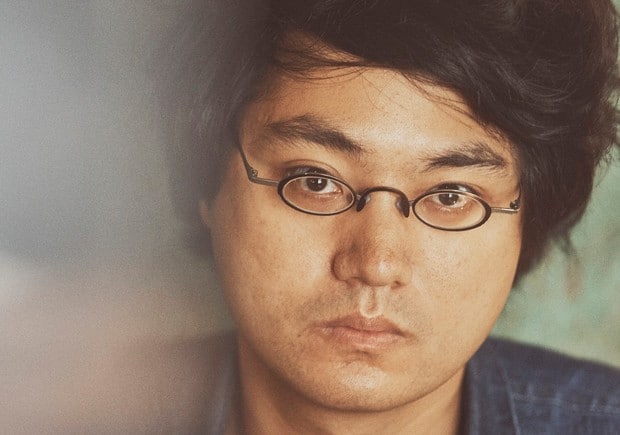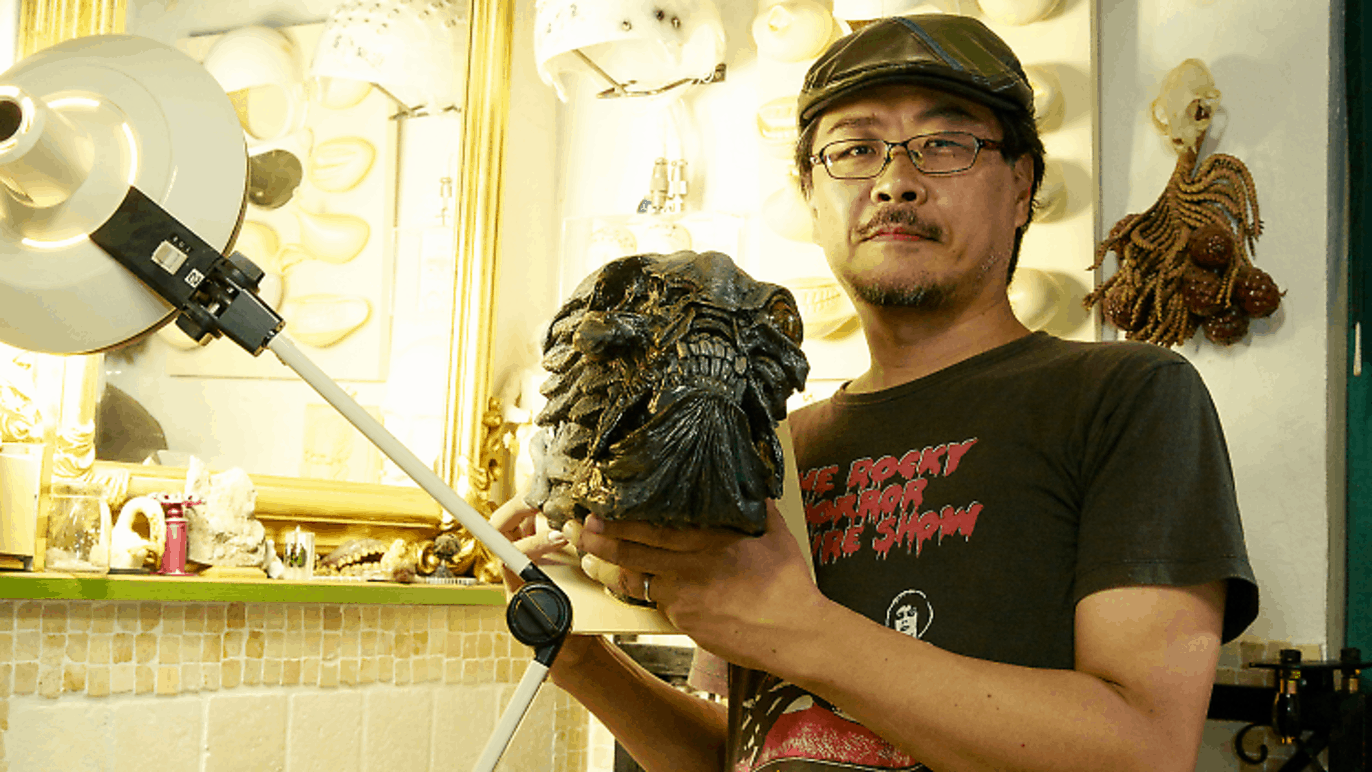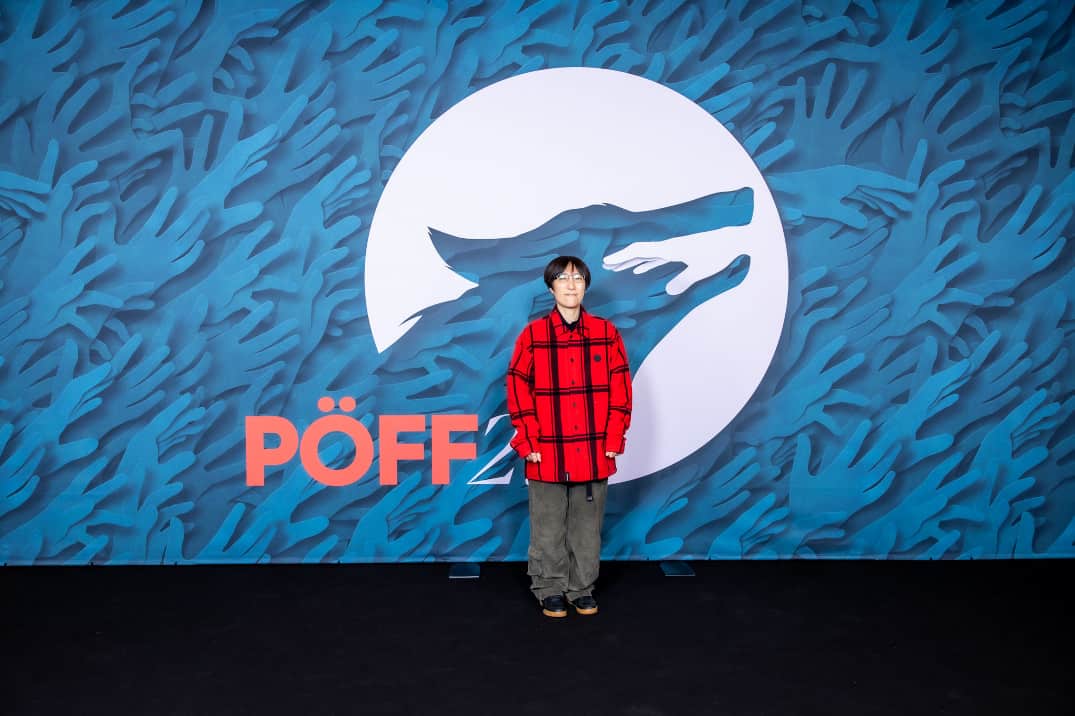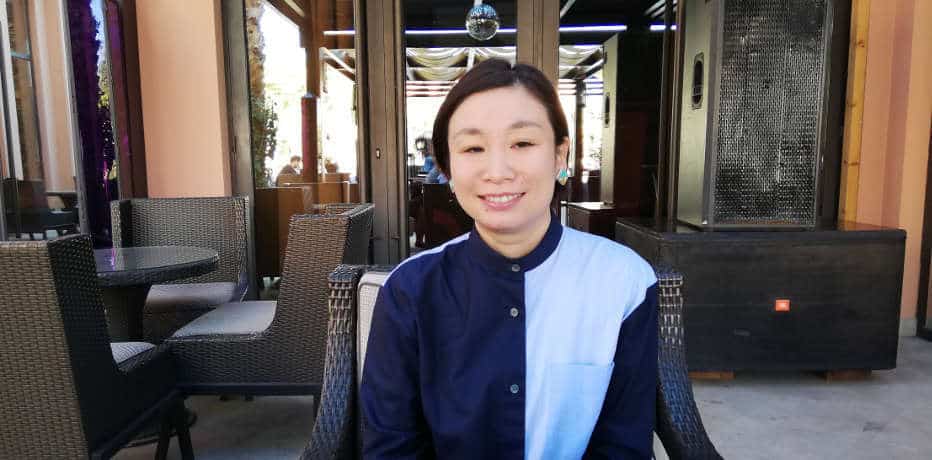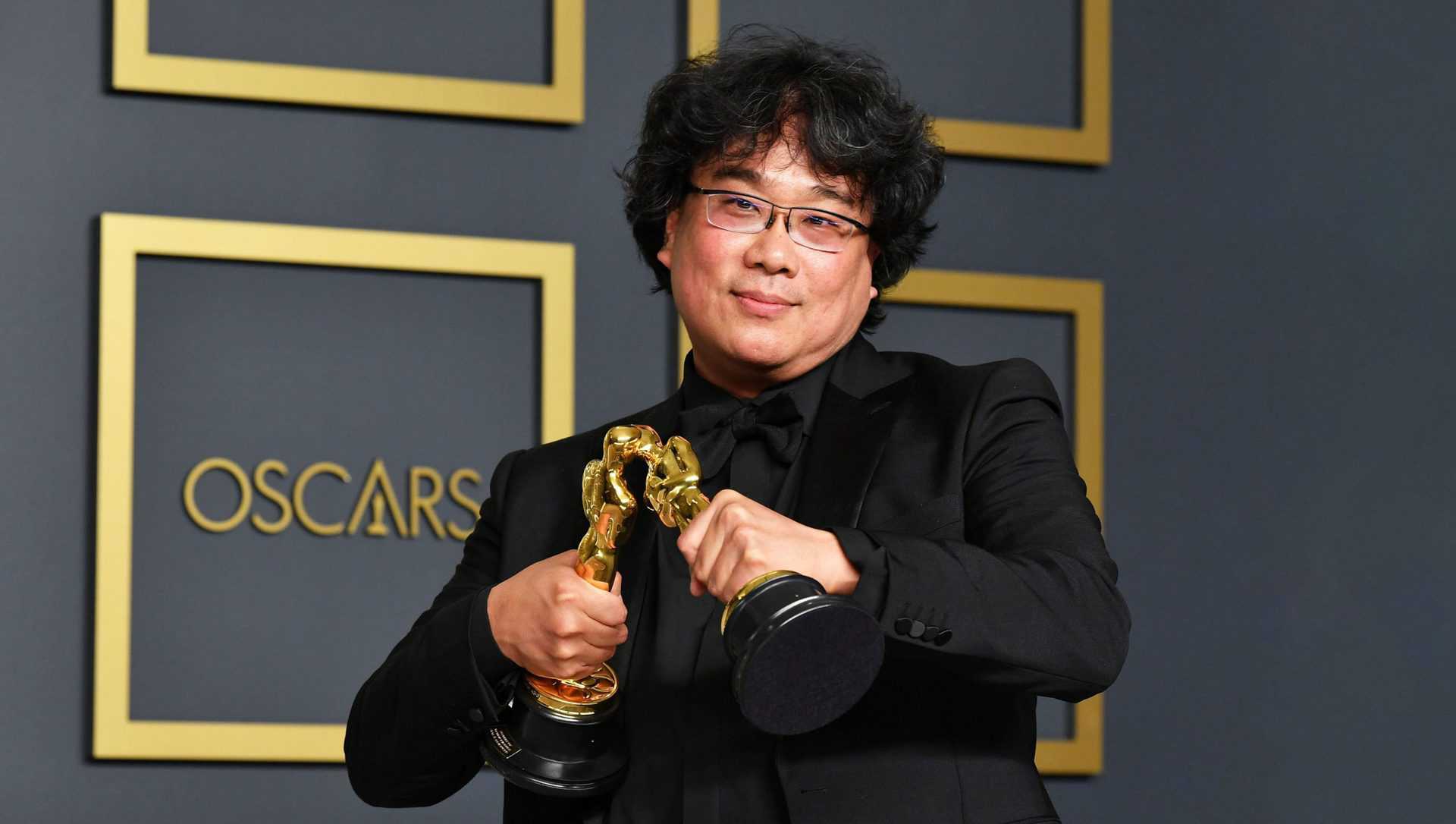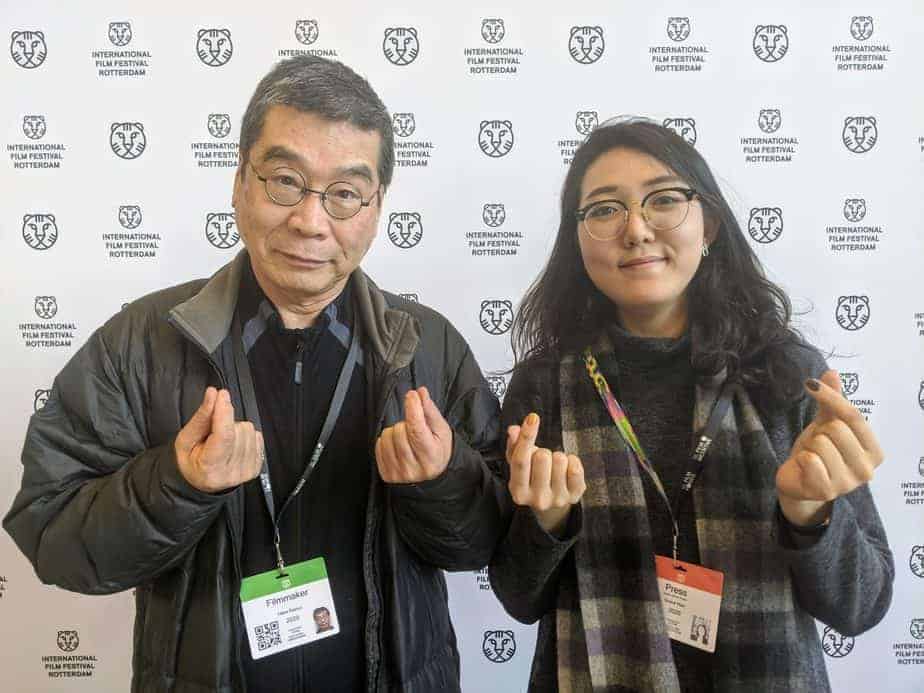Cambodian-French director-producer Davy Chou made a sweet revisit to Festival de Cannes after a 6 years break – during which he was preoccupied with establishing himself as an adherent of Cambodian new talent pool as a producer – and lighted up the Un Certain Regard sidebar with his third film, a South Korean and European co-production, “Return to Seoul”. His feature debut, “Diamond Island”, was set in Cambodia and marked a strong presence among Semaine de la Critiques in 2016, but this time, it is South Korea's Seoul that becomes a stage for Chou's next venture. Born and raised in France, where his parents found asylum after fleeing away from the Khmer Rouge atrocities in the 1970s, Chou conveys a seemingly autobiographical depiction. In his film, a 25-year-old Korean-descent French woman, Freddie (Park Ji-min), plunges herself in an erratic effort onto the vibrant tissue of Seoul to reconnect with her biological parents and – more than everything – to rediscover her identity within the liminal, transcultural frame.
A few days after the buzz of Festival de Cannes has already cooled off, we met with Davy Chou over a zoom call to extensively tackle the premise of his “Return to Seoul”. We managed to discuss the general idea behind the unpredictability of Freddie's character, the back-and-forth navigating between the underground club scene and the figure of the Korean table – and the inspiration of Hong Sang-soo – as well as the audiovisual side of the film, with its psychedelic soundtrack and beautifully ecstatic expression of Freddie's dancing, and finally – the film's transcultural notions that make the whole production simply important for many Asian-descent people.
“Return to Seoul” screened at Festival de Cannes!
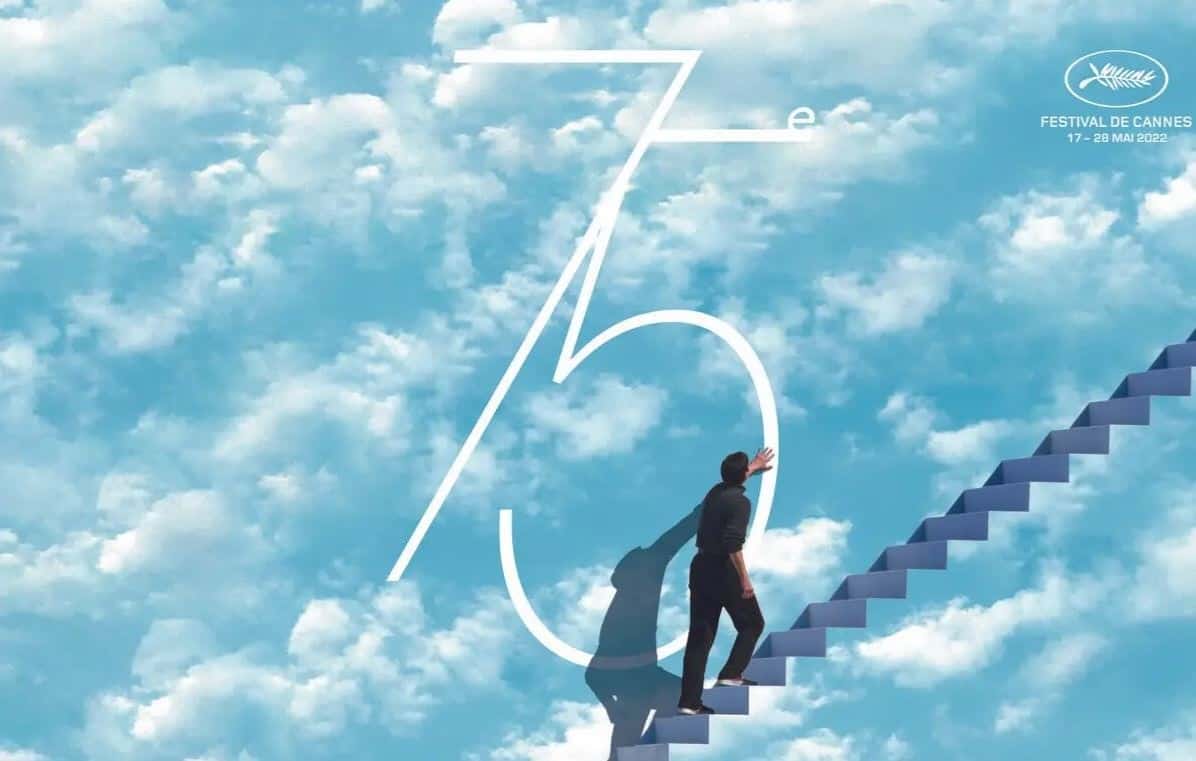
I'd like to start with the protagonist of your film, Freddie. Even though “Return to Seoul” is partially based on a real story, there is a strong element of your experience and your perspective included in the film. What did you think about when you wrote her character? In other words, who is Freddie for you?
I think she's a force. It's that kind of a notion that is neither positive nor negative but rather abounds in contradictions. Life is full of contradictions, real people are so too, so I wanted to portray a force that would reflect on the nature of contradictions. In the case of Freddie, she also has this thing about somewhat constantly refusing – people, things, society, but also, in a way, herself. Particularly with the latter, I guess it comes with the fact that, at some point, she's striving to define herself. But ironically, the force I'm talking about always resists any sort of plain definition. And it's not just a teenager rebellion she's going through; it's way stronger, as it derives from her personal background – feeling of abandonment, adoption, growing up in the country with a sense of displacement. And it gets stronger because once she's in South Korea, she's anticipated to act as Korean, which only makes her even more reluctant to embrace the anticipation. In fact, the desire becomes the necessity: to simply say ‘no'. But there's the capacity to one refusing everything; the question indeed becomes ‘What are you, then?'
The film deals exactly with that. I think Freddie is really brave. She keeps on confronting herself. She's going through many difficulties. I imagine it's so easy to say ‘yes' to all the things she's facing, as there are many unanswered questions or doubts. And she really wants to know the answers. It can get into your guts, and pierce through your bones. She also has this instinct, a survival one, from the day she was born; thanks to that, she's able to maintain a distance, and keep on refusing. But in a way, her responsibility becomes about reinventing herself – this time around, on a new cultural ground – whilst not falling into fake illusions. This is her journey. For me, her character is about the process of reshaping one's self through freedom, bravery, and emancipation, but also – what's even more important – through anger. She becomes a vessel for pure anger. I don't want her to lock it down, but to bring it and liberate through it, both for better or for worse. The beauty lies in there – to see her in the process, seeing her doing all of that, that is, finding herself.
How did the process of writing Freddie's story come about? What was her trajectory?
That's an interesting question. The whole process of writing is always a bit mysterious for me because you never know what happens during that time. And it's a long period of time, it can last up to three years or longer. I'm also a producer, so in between writing, I normally produce other films. Oftentimes, I have a feeling that my memories get mixed to the extent it becomes almost impossible to clearly distinguish the genesis of an idea at some point. As far as I remember Freddie's story, there was a lot of attention to the biographical axis; the story itself is based on a real character – a friend of mine – as you mentioned earlier, so I wanted to include as many details of her story as possible. Since I accompanied my friend on her journey, I witnessed the meetings with her biological father twice, including the very first one in 2011 and the second one in 2017. With that, I knew I want to rely on my observations, but I guess the real thing was my extended conversations with my friend.
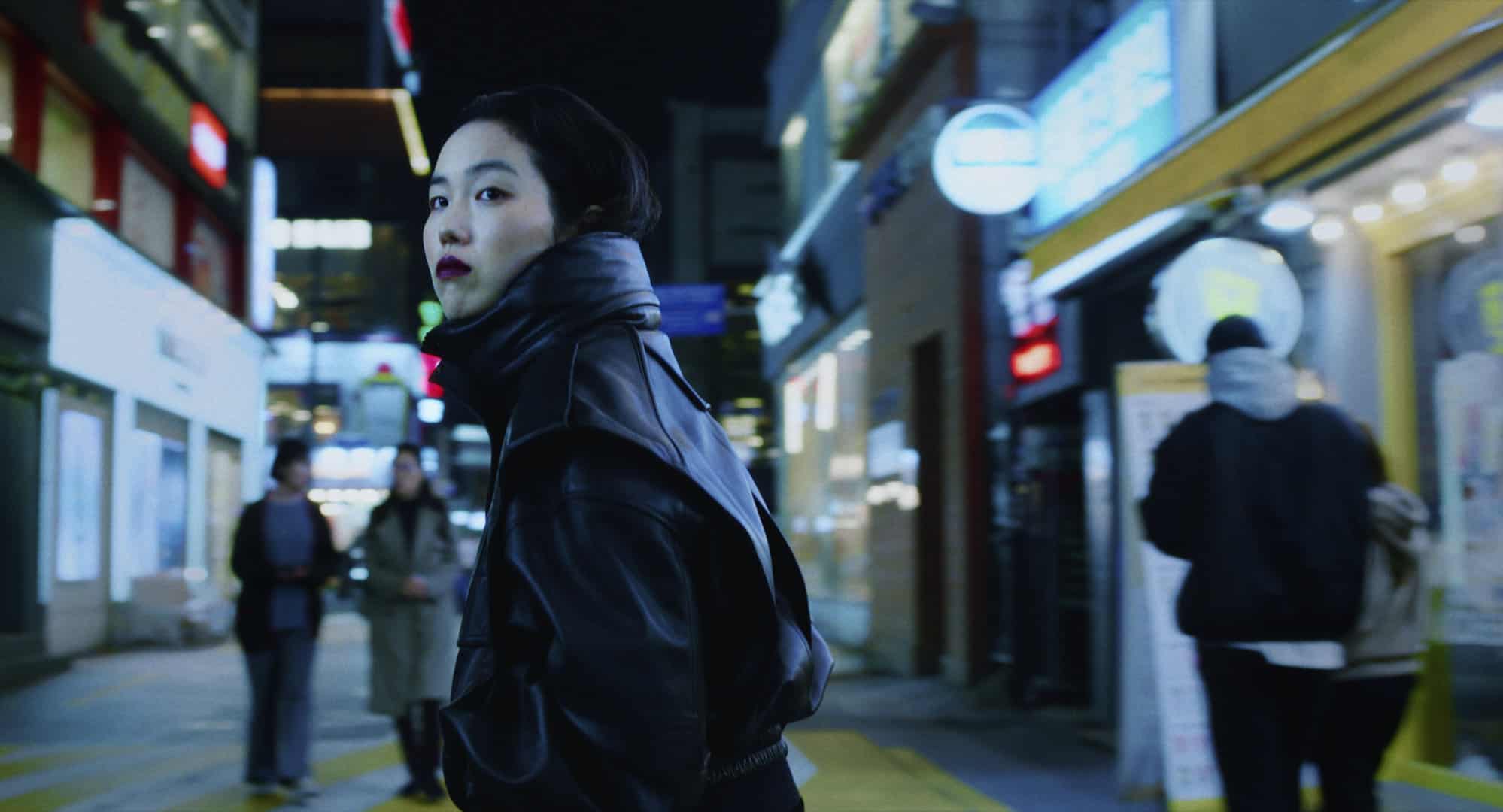
The film indeed starts as a journey of finding one's cultural and biological roots, but then it becomes more universal and holistic; the process of redefinition starts to revolve around the notions of identity in general. The story unfolds over the time span of eight years in total, with Freddie coming back and forth between the different aspects of her identity in the South Korean landscape, familial, cultural, and gender. How did you approach the timeline of the story and the structure of the narrative?
I think that structure-wise, I wanted the story to have three parts from the start. The question of time was supposed to be vital as well. Both my friend and I had the experience of delving into our roots. This is the kind of journey that evolves with time. It takes time to be able to look back. You start to question your relationship with that country; the story of one's origin becomes a story of constant evolution. Some stories don't need that much time, but with this one, at some point, I knew very deeply that I need time so that this story can unfold organically. I simply felt there was something in it, that only time can extract. Otherwise, I would be telling a lie or showing an illusion. The three-part structure allowed me to show Freddie's evolution. Obviously, I was very fascinated with the background of her story: adoption and cultural roots. However, I started to feel there's more to it; I realized it's actually about a woman and her relationship with her native country. It's way more complex. And that was something I really wanted to see myself in. When I started to write the script, I remember the feeling of being lost. I doubted my legitimacy – I'm neither woman, nor Korean, and I capitalize on my friend's personal story. So, what's my take?
I wasn't familiar with the sense of being abandoned and adopted, so the question became how can I actually relate to it. In fact, I might never be able to do so. It also comes with the fact that my parents experienced trauma when they had to fly off to Cambodia. I'm always scared that I will project myself and that I will never be able to really feel what they did back in the day. Thus, the matter of representation and legitimacy came back and forth as I was working on the script. The thing is, however, that it's always good to be lost in the writing process – until the point you're not lost anymore. This is when you reconnect with that something – it's the moment when I understood I need to put everything into the film, every inch of myself, all my guts. Only then I could be assured that I might establish some sort of personal link between me and the topic. That's why the story becomes the narrative of finding oneself on a more holistic level, as you mentioned; it receives an enlargement treatment of the real topic of the film, with finding ways to answer some pivotal questions about who we really are, regardless of our biological roots.
Since Freddie tends to lead us toward many unexpected moments – although the journey is filled with amazing, unpredictable energy – I was wondering if there were any unscripted scenes that were improvised during the shooting?
It wasn't possible, so absolutely not. Production limitations. It was a very short shooting schedule, with only 29 days in South Korea. Lots of pressure on all of the team and we needed to organize all of the shooting very neatly. But, I love when you're able to do that. I did it with “Diamond Island” – I rewrote some of the last scenes at the very last moment before our final shoot, as I was very frustrated with the way things went back then. But here with “Return to Seoul”, the Korean crew was somewhat very rigid – in a good way – so it would be impossible.
The idea of unpredictability and the desire to give the audience the element of surprise derives entirely from writing. I remember when I pitched the idea for the film, I said in my statement that one of the goals of the story is to achieve some level of unpredictability. But when you pitch the film, people really want to know the general premise of the story – what is it about, what's the story, what's the direction. Here, it starts with the idea of adoption, meeting biological parents, moving to South Korea, etc. It's a huge part of the story, but it's only a part of it. I wanted to challenge that, but I was also scared – I was hesitating, how predictable the story should be. And I think the essence of Freddie, and now I come back to the first question, is that she's that unpredictable character.
The crucial factor was balance. I could navigate between the idea of a classical narrative and that character whose energy can guide the audience onto these unexpected moments. I wanted the first 15 minutes of the film to overwhelm with unpredictability so that one can immediately tell that Freddie is full of contradictions. She first says she doesn't want to meet her parents, but in the next scene she's talking at the adoption center, and we don't really know why. I wanted the audience to say to themselves: “okay, whatever, I just follow Freddie, and see what happens”.
How did you work on that notion of unpredictability in terms of editing?
Editing was the key to maintaining the right tension of the story. The first cut was actually 165 minutes and it not only felt too long but also too predictable. The editing controls the rhythm and the tension of the film, but also it gives the ability to control the emotional states of the character – and in some way the actress as well – so that you're able to maintain the constant tension on a certain level. The unpredictable also comes with bodily movement – when you film the party scenes or dancing, you might have a general concept of the scene, but eventually, you turn to the accidentality, moments. The way I showed the club scenes in my film might look quite precise, but there's a lot of attention to preparing the space to find the unexpected. I guess the same might be said about fighting scenes – I've never shot any before, so when Freddie is suddenly fighting with the wrestler, it was all based on spontaneous energy. Sometimes you just have an idea, you stick to it, and with that, you jump right in the middle of the scene and see what happens.

There is somewhat of a dissonance about the meta-level of your film. It conveys a portrayal of transnational identity but the film itself stands out as a transnational project. As a festival programmer who deals with Asian Cinema, I got into several discussions about the identity of your film and it seems that “Return to Seoul” is a bit problematic in terms of framing it. My question would be – is this Asian Cinema? Or is it not?
I hope I won't get blocked too much! [laughs] It's a funny comment to hear, though. And I will take it as a compliment. Jokes aside – it's true, I've been living between Cambodia and France for the past ten years and I'm doing most of my films in the former, which includes producing (e.g. “White Building”, Kavich Neang, 2021). When I'm in Cambodia, I live in a very cosmopolitan area, where I'm surrounded by many Koreans, Americans, or Taiwanese people. At work, I always have a mixed team of people from either Cambodia or France. And the whole international tissue – it's not an easy matter to deal with. It's actually very complex, as there's always something to deal with; it's a constant ongoing process. In a way, we will never be able to understand each other completely. But this is the core of the experience – a never-ending process of learning. And I guess I wanted to include that in the film as well – the complexity of internationality.
How did it translate to your way of working with the actors?
As a matter of fact, I think that meeting my actors was a formative experience for the film's sake. More than the production itself, I think the aspect of transnationality derived mainly from them, really. And it was the most exciting part of prep work. The main actress, Park Ji-min, was a non-professional at the beginning. But it was a choice. The story is based on a real character, so when I met Ji-min, I was absolutely amazed. Even though she had no prior experience, she was incredible from the start. Freddie's best friend, Tena (Han Guka), is also a non-professional actress who's currently a writer based in Berlin; or Lucie (Emeline Briffaud), who appears in the second part of the film as a young adoptee. With all of them, we had to make some actor training, but it was all worth it.
Why didn't you go for Korean actors, though?
I did casting in South Korea, but it was difficult to find someone who would speak both Korean and French. Of course, South Korea abounds in amazingly gifted actors, and the talent pool is vast, but since most of the time they don't speak French, we decided to go for the non-professional choice. We could go for a hard-learning process and make the actors learn French, but that would be a risk of having a fake language sound. Instead, we had this amazing instinct and natural energy. However, we did cast famous actors as Freddie's biological family, with Oh Kwang-rok (Park Chan-wook's “Vengeance Trilogy” or “Bittersweet Life”), playing the father, or Kim Sun-young (famous for her k-drama roles) embracing the role of the aunt. Even with the scenes in South Korea, we mixed the cast with European professional French-speaking actors as well, or in some of the scenes in the club, there are professional Korean actors – the wrestler, Freddie's boyfriend Kay-Kay, women at the adoption centre – and I think that particular configuration emphasizes Freddie's experience, being at the liminal verge between two cultures, two languages (or even three, if we consider English), and builds into the politics of the film.
Another set of contradictions, I guess.
Kind of, yeah. It's this awkwardness created by uncontrollable two worlds that belong to different spheres.

Speaking of the cultural frictions that appear in the film, I was thinking about Freddie's attitude and character. At times, she seems incredibly self-confident and proactive compared to Korean people, but her confidence and self-awareness might as well be recognized as arrogance. Weren't you afraid that, at some point, you might embrace this sort of patronizing gaze? That you will look down on the landscape you're not necessarily familiar with?
Of course, and that was a big thing for me – not to have that gaze. Even the fact that you mention it, it simply means it's somewhat there, this gaze. For me, it is also somehow problematized, but then again, integrated into the story. We had a lot of discussions about it with my actress, Park Ji-min, prior to the shooting. When we were re-reading the script, she was very sensitive to so many things, asking me many questions about the dialogue, gender issues, and cultural things. And then we came to the first scene and she was suggesting that Freddie is like a new colonialist appearing in South Korea. And she was right – I've seen so many real scenes of French people in Cambodia, frankly speaking, just being arrogant. And that was something I didn't want to omit in my film as well.
What you described as self-confidence and arrogance, for me, works as a shield for Freddie; this is the way she tries to protect herself at the beginning. But this is also the result of the necessary re-education she had to go through to prove herself as a French person, just to make sure she's really that French. In a way, the film becomes the process of deconstructing one's facade – of arrogance. But Ji-min, even though it's vital to do all of that, pointed out the lack of critical perspective from my side. So it made me question myself, too. That's why I decided to challenge Freddie through other characters – some people look childish, some play around with Freddie's irony with their irony, and the family will constantly seek agency in regard to her. I wanted the dialogue to sustain this cultural tension and the whole process of working on it made me realize how many layers were built into Freddie's character.

Aside from the dialogue and the attitude, there's also the body language. The way Freddie moves is something else; in a way, it doesn't fit, but the energy is just captivating.
It's actually tied with my observations from different countries in Asia. Ji-min was actually born in South Korea but moved to France at the age of eight, so at that time she was definitely more Korean than French. When we're talking about body language, for me, as soon as I see someone, I guess I'm able to tell whether that person was born in France or some other country, or if someone moved to France at a very young age. The body speaks it all. The body language doesn't have to tell anything about confidence, but it tells a lot about the way you occupy the space. Again, it's tied with the notions of colonial history – it's like the place belongs to you. You can just feel at ease wherever you are. On the contrary, when you live in Asia – depending on the country, of course – you can notice that people focus more on the center of their little spaces, trying to be as much spatially unobtrusive and non-invasive as possible. It's a generalization to some extent, but there's a lot of truth in it. That said – I was trying to push Ji-min so that she could develop the ease of feeling the space and somehow become the colonial intruder.
That's so fascinating about Freddie, as the body movement is her other language of communication. Especially when we see her dancing – it's so powerful and it tells so much about the character and her incompatibility with the space she occupies. And I must say, it made me want to go for a techno night. How did you approach the dancing scenes?
Thank you for saying this. I love watching cool dancing scenes, but there are not too many to find. If I were to give you my list of favourite ones, there would be definitely Claire Denis's “Beau Travail” (1999), but with this, you can't really compete. The other example doesn't necessarily have to do with the choreography of dancing per se, as the joy and power don't come from the actors dancing, but it has something to do with the music and the camera movement – Nadav Lapid's “Synonyms” (2019). In both cases, there's this particular attention to Euro-dance and for me, it's just amazing. One of my personal favourites is Naomi Kawase's “Shara” (2003), with the rain-dancing at the end making it perhaps one of the best dancing scenes in film history. And to frame the list, I would also add James Gray's club scene with Joaquin Phoenix in “Two Lovers” (2008), which for me is also incredible.
Anyway, writing dancing scenes is always scary. I wrote one for “Diamond Island” but it didn't go to the final cut eventually. With “Return to Seoul”, I wasn't sure about it either. When you write it, it's like when you write about sex scenes: “and now they have sex.” We'll see how we're gonna approach it, once we're shooting the scene. It's just a script with a theoretical character, a concept, so at that point, you don't really know what kind of dance you want to have yet. What I like to do with my non-professional actors is to play games. We do lots of alcohol games – but without alcohol – so that people can relax and just have fun at first so that we can get to know each other. And at some point, I ask others if they can be their own DJs and then we start to dance to their favourite music.
On one of these nights, I saw Ji-min dancing for the first time. It was a bit similar to the way she dances in the film. And I must say, I was fascinated by it, but also amazed because she told me before that she wasn't feeling comfortable with her body in a general way. The film itself tackles the bodily representation in many ways, so we had plenty of margin to work with. There's tension in her body, which is slowly released throughout the whole story, but when she starts dancing, you can feel some density in the muscle. But at the same time, it translates to something absolutely exploding. When I saw her dancing for the first time, I took a hand-held camera and started to record her, so that I could show it to my DP and the gaffer afterwards. I wanted to come up with the camera movement through which we would be able to capture that unique sort of force, the electricity that is both bright and dark at the same time.

How did you shoot Freddie's dancing scene eventually?
It was crazy. We had so many technical problems that we lost three out of ten working hours, which is a lot on one day. We decided to schedule the dancing scene at the end of our shooting day, which was risky, as we didn't know what to expect. We did one take, which was great but there was some minor mistake with one extra who was very present in the scene in a way I would have to edit it out. And I wanted to have it in one sequence. So the day was almost over and, along with the producer, we begged the team so we could have the second take. And we did – ten minutes after finishing it, everybody started shouting out of happiness, as we all knew that it was that good. If you think about it, it's just text in the script. But the way it was embodied was just miraculous.
I also noticed the work you've done around the setting. On one side, we have a very vibrant underground club scene of Seoul, a noisy space where Freddie spends a lot of time; on the other, the more dramatic setting of the figure of a family table – something that reappears in Korean Cinema on many occasions, either in family dramas or Hong Sang-soo's oeuvre. You seem to have found the right balance between the two contradictory realms and I was wondering how did you approach it to find the right tone?
Oh, that's a good question. The starting point was to, indeed, establish a contrast between the party scenes and the family meetings. But, actually, at the very beginning of thinking about the film's concept, I thought it will only consist of table scenes. It might be the case I was too inspired by Hong Sang-soo; so I thought it will be Freddie, only having food with different family members over the course of ten years. But I changed that premise, as I subconsciously felt it wouldn't be right for the film's DNA. I'm a fan of Hong Sang-soo, but it would be stupid of me to copy-cat him, but I did rewatch his work and other films as well, and I felt that I need something else to find my expression.
With table scenes, more than Hong, I think I was inspired by David Fincher or classic American Cinema as I found there is more authenticity in terms of dynamics between the people, but also setting in general. Coming back to the contrast thing – I think it was more about Freddie being rendered as some sort of agent of chaos, a bomb that might as well explode at any given moment. For me, the most crucial was to convey the tension of her presence. It translated to the formula of the scenes: I start with a purely Hong Sang-soo style long take, then it is shot-reverse-shot, and then suddenly Freddie jumps out after an unexpected confrontation, deconstructing the whole dramatic point of the mise-en-scene so that the scene turns into a more chaotic shoulder camera. I was also a bit worried that the film might look like two different loose parts and I guess I relied on my trust to match Freddie's energy – on the diagram I wrote at the beginning I remember there was playing around her tension and intensity, that sometimes she would destroy the scene, and sometimes she would remain calm.
I must say that one of the major influences was the work of the Safdie brothers. Especially “Good Time” (2017) and “Uncut Gems” (2019) – I discussed these films thoroughly with my team before we plunged ourselves into making “Return to Seoul”. Their work is basically about creating chaos and maintaining control over it. It's extremely difficult to do, but their ability to work around tension is perfect. Another thing was Lapid's “Synonyms” in which there is also a very distinctive energy: of an actor who keeps on provoking the gaze of the camera. There's this feeling of a dance with the movement of the camera or some sort of fighting choreography. I guess I also aimed for the feeling that Freddie would be provoking, fighting and battling with the camera.

Much of the film's charm also comes from the music. Freddie's journey is framed in between the electronic music of Jérémie Arcache and Christophe Musset, with whom you worked before, and psychedelic South Korean folk-rock from the 1970s, mostly composed by legendary songwriter Shin Jung-hwa. I'm especially curious about the choice of the latter – where did it come from?
Jérémie and Christophe made an amazing job as the music feels as if it is a pre-existing one, but it was actually composed for the film. And that simply helps the film – you automatically have the feeling it's integrated into the story. With Korean music, I came across several times on multiple occasions. For instance, the song ‘Petals' (composed by Shin Jung-hyun, and performed by Lee Jung-hwa) appears in Bong Joon-ho's “Memories of Murder” (2003), but more importantly, I made some research on Korean drama, that I wasn't familiar at all before doing “Return to Seoul”. There's a lot of great music in there, especially in the productions that deal with a historical setting. My first trip to South Korea was in 2011 when my first short got into Busan IFF, and I met with my friend back then – the one whose story inspired me to make “Return to Seoul” – after spending one week on my own in Seoul, at the guest house my friend also used when she came to Seoul for the first time in 2008, when she was about to find out about her biological family. Back then, I had no clue about making the film, I just wanted to have fun. So I was just enjoying it – hanging out alone, drinking with strangers, discovering things. One night I met this Korean guy on the street, who said he will take me to the best bar in Seoul. And so he did. It was a vintage bar, where people were dancing to music from vinyl records. The music I instantly fell in love with was the 70s psychedelic South Korean rock. But films are like that, right? It all derives from personal experience; sometimes you just don't know.
Although sometimes there is no better material than a personal story, and however tempting the story might be, I guess it is very complex in terms of navigating between one's background.
I think so, absolutely. I'd say one needs to be very cautious about the temptation to go too easy on the autobiographical route. The risk is huge. I mean, I think I will never be able to tell the story of a 25-year-old guy coming back to Cambodia to meet his biological parents. That would feel very strange to me. Fiction can liberate you. It can make you distance yourself from your story. Eventually, it can also bring ‘you' into it. It's a matter of dialectics – fiction allows you to emancipate yourself from yourself. And it's not the case that it's because it's fiction, it's not going to be personal – quite opposite. Many people tell their stories, so it's legitimate. But for me, it's a bit frustrating at times.
Why do you feel frustrated about it?
It's about the perspective. A lot of times, if the film revolves around specific characters, the whole depiction resembles the image of self-indulgence. One gets too close to the material and one's own story. There's a lack of liberation because there's no distance from the story – many people just want to tell their stories right, because these are their stories. For me, it's a form of self-oppression. If I had to project myself in such a direction, I would feel a bit too proud or even shy.


